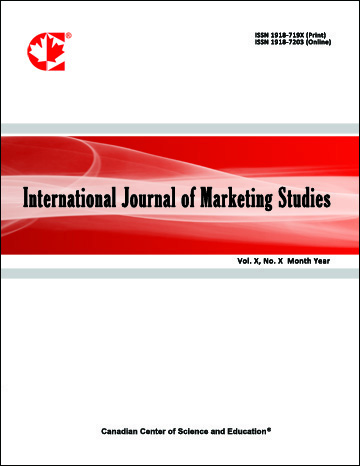Investigating the Effect of AI-Generated Customer Reviews on Purchase Intent and Perceived Authenticity in E-Commerce Environments
- Miracle Eze
Abstract
The fast emergence of generative artificial intelligence (AI) in online marketplaces has prompted critical inquiries about consumer perceptions of AI-authored content. Online reviews function as a leading factor that influences buying decisions, although there is limited understanding of how review origin (whether composed by humans or AI) affects authenticity perceptions and willingness to purchase, especially in developing markets where e-commerce trust remains low. This research investigated the effect of AI-generated customer reviews on purchase intent and perceived authenticity among Nigerian e-commerce users. The research employed a survey experiment using a simulated product page from AliExpress, as well as 300 participants between 25 and 40 years old, to examine direct, mediating, and moderating effects through a PLS-SEM model. The findings indicate that AI-generated reviews are regarded as less genuine than human-written reviews (β = −1.418, p < .001). In addition, the study found perceived authenticity to be a significant predictor of purchase intent (β = +0.766, p < .001) while completely mediating the connection between review source and intent (indirect β = −1.086, p < .01). Unexpectedly, platform trust did not moderate this relationship. The research results enhance marketing theory by using the Theory of Reasoned Action (TRA) and the Elaboration Likelihood Model (ELM) in AI environments to demonstrate that authenticity serves as a crucial cognitive factor in digital persuasion. From a practical perspective, the research indicates the need for both local and global e-commerce platforms to maintain clear review disclosure to customers, while Nigerian regulatory authorities need to create disclosure standards for consumer protection. Nevertheless, this study confirms that authenticity continues to be a fundamental element of trust and purchasing behaviour, even within a marketplace driven by AI.
- Full Text:
 PDF
PDF
- DOI:10.5539/ijms.v17n2p62
Journal Metrics
Google-based Impact Factor (2021): 1.34
h-index (July 2022): 70
i10-index (July 2022): 373
Index
- Academic Journals Database
- CNKI Scholar
- EconBiz
- Electronic Journals Library
- Excellence in Research for Australia (ERA)
- GETIT@YALE (Yale University Library)
- Harvard Library
- IBZ Online
- Infotrieve
- JournalTOCs
- LOCKSS
- MIAR
- PKP Open Archives Harvester
- RePEc
- ResearchGate
- ROAD
- Scilit
- SHERPA/RoMEO
- Stanford Libraries
- UCR Library
Contact
- Alyssa SunEditorial Assistant
- ijms@ccsenet.org
